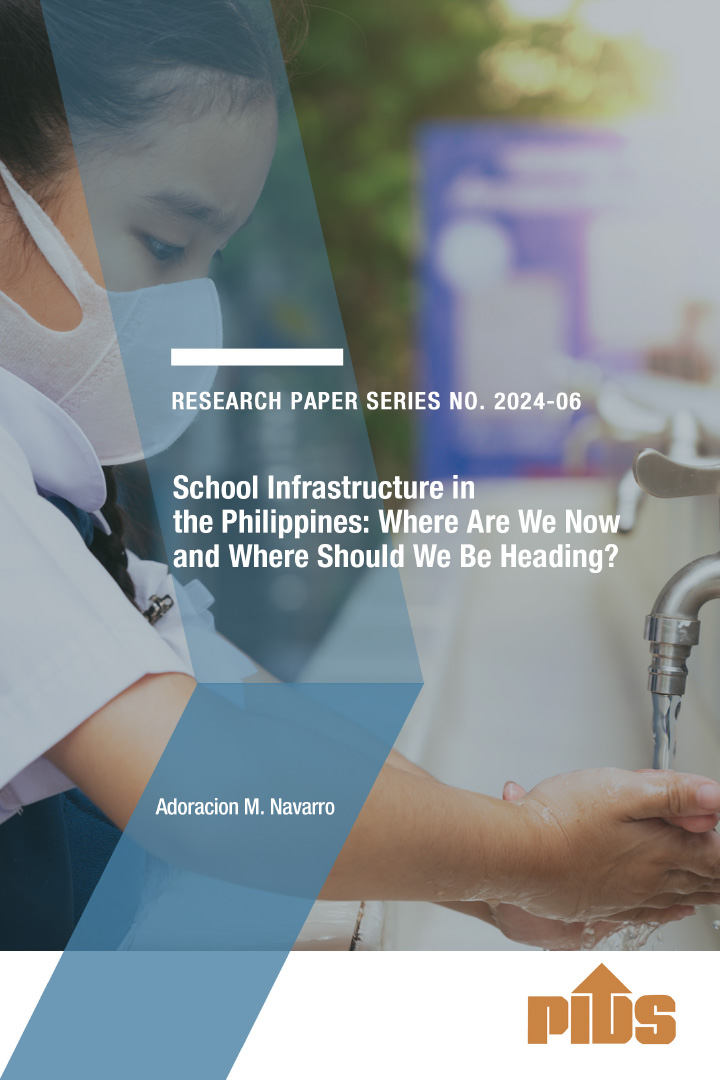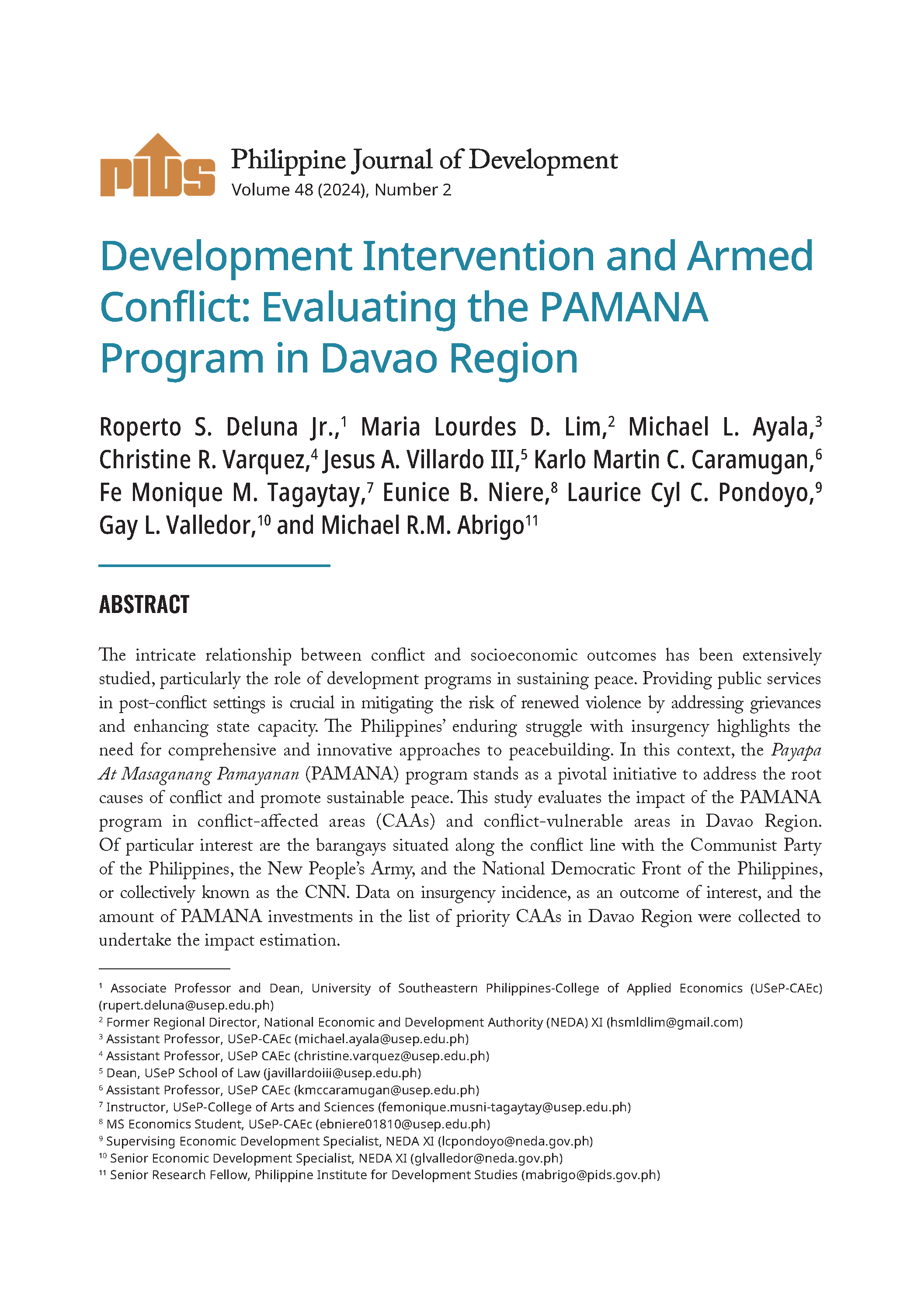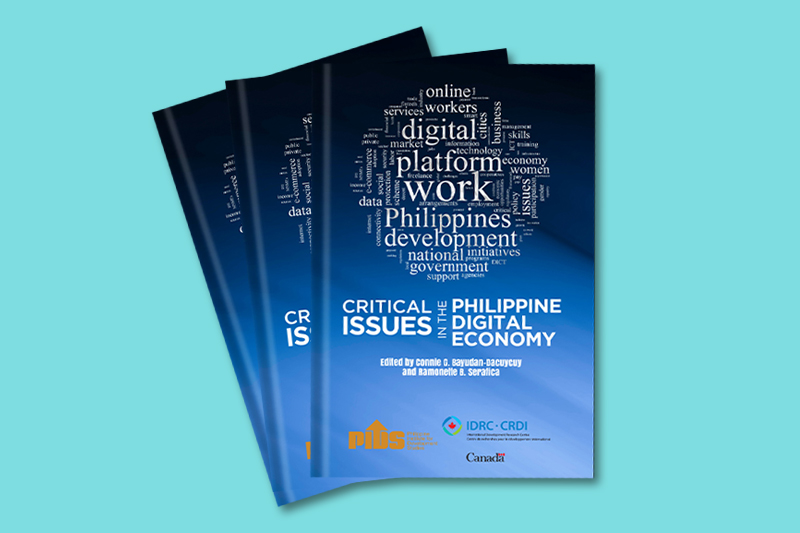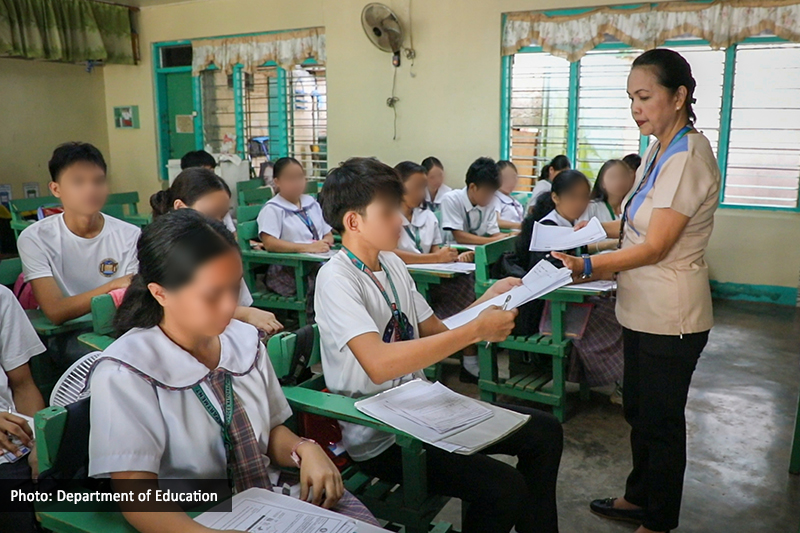
In today’s knowledge-based economy, the competitiveness of a country depends on the efficiency of its information and communications technology (ICT) sector. As such, the Philippines needs to have a reliable ICT infrastructure and an ICT-competent workforce to keep up with the digital economy.
Currently, roughly three in every five (58%) Filipinos have access to the internet, according to the report, Digital, in 2017 by social media consultancy firm, We Are Social, and social media management platform, Hootsuite. This places the Philippines fifth in Southeast Asia in terms of the number of internet users, and slightly above the average global ranking based on internet penetration level, which is at 50 percent.
However, while the Philippines has experienced an incredible internet population growth since 2000, researchers Jose Ramon Albert, Ramonette Serafica, and Beverly Lumbera from the Philippine Institute for Development Studies (PIDS) still noted a relatively weak uptake of ICT services in the country.
In their study, Examining Trends in ICT Statistics: How Does the Philippines Fare in ICT?, Albert et al. attributed this to the high cost of ICT services. In terms of telephone services, for instance, users usually pay around PHP 1,800 for their monthly fees, currently the most expensive in the region. They observed the same scenario in other ICT services, such as mobile cellular and fixed broadband services, where the Philippines has the second and third highest retail prices, respectively, in Southeast Asia.
Despite this high cost, the Philippine ICT environment remains significantly below the international standards. In a study, Rebooting Philippine Telecommunications through Structural Reform, Serafica, together with Ma. Kristina Ortiz and Jose Carlos Alexis Bairan, noted the country’s poor performance in ICT governance and regulation. Specifically, they cited the country’s failure to institute an independent regulatory body for the ICT sector, the presence of unnecessary and biased policy of requiring legislative franchise to authorize ICT service providers, and the nonissuance of unified license, as factors behind the ineffective regulatory environment in the country.
To achieve an ideal ICT environment, Albert et al. urged the government to explore partnerships with the private sector for building new and better infrastructures and for upgrading the capacities of ICT staff to keep up with the fast-changing technologies.
Meanwhile, Serafica et al. encouraged the creation of an independent regulatory body that has both decisionmaking powers and a stable and reliable source of revenue for their operations. They added that it should likewise have officials who have fixed terms of office that should not coincide with the tenure of the executive and legislative branches of government.
Ultimately, PIDS researchers recommend the formulation of better laws, rules, and regulations; increasing ICT investments to upgrade infrastructures; monitoring and regulation of network interconnectivity; and enhancements in the capacity and accountability of offices that manage the ICT sector like the Department of Information and Communications Technology.
You may access the following publications as well as related studies from the PIDS website and the Socioeconomic Research Portal for the Philippines. Simply type the relevant keywords in the Search box.
- Rebooting Philippine Telecommunications Through Structural Reform
- Examining Trends in ICT Statistics: How Does the Philippines Fare in ICT?
- Making digital dividends inclusive
- e-Government Initiatives of Four Philippine Cities
- The Philippine Information and Communication Technology Sector: Evolving Structure and Emerging Policy Issues
- E-governance at the Local Government Level in the Philippines: An Assessment of City Government Websites
- E-commerce in the Philippines: A Preliminary Stocktaking
- Reviewing the Philippines’ Spectrum Management Policy
- Narrowing the Digital Divide: A Must for the ICT Sector
- Competition Policy and Regulation in Power and Telecommunications
- E-governance at the Local Government Level in the Philippines: An Assessment of City Government Websites
Currently, roughly three in every five (58%) Filipinos have access to the internet, according to the report, Digital, in 2017 by social media consultancy firm, We Are Social, and social media management platform, Hootsuite. This places the Philippines fifth in Southeast Asia in terms of the number of internet users, and slightly above the average global ranking based on internet penetration level, which is at 50 percent.
However, while the Philippines has experienced an incredible internet population growth since 2000, researchers Jose Ramon Albert, Ramonette Serafica, and Beverly Lumbera from the Philippine Institute for Development Studies (PIDS) still noted a relatively weak uptake of ICT services in the country.
In their study, Examining Trends in ICT Statistics: How Does the Philippines Fare in ICT?, Albert et al. attributed this to the high cost of ICT services. In terms of telephone services, for instance, users usually pay around PHP 1,800 for their monthly fees, currently the most expensive in the region. They observed the same scenario in other ICT services, such as mobile cellular and fixed broadband services, where the Philippines has the second and third highest retail prices, respectively, in Southeast Asia.
Despite this high cost, the Philippine ICT environment remains significantly below the international standards. In a study, Rebooting Philippine Telecommunications through Structural Reform, Serafica, together with Ma. Kristina Ortiz and Jose Carlos Alexis Bairan, noted the country’s poor performance in ICT governance and regulation. Specifically, they cited the country’s failure to institute an independent regulatory body for the ICT sector, the presence of unnecessary and biased policy of requiring legislative franchise to authorize ICT service providers, and the nonissuance of unified license, as factors behind the ineffective regulatory environment in the country.
To achieve an ideal ICT environment, Albert et al. urged the government to explore partnerships with the private sector for building new and better infrastructures and for upgrading the capacities of ICT staff to keep up with the fast-changing technologies.
Meanwhile, Serafica et al. encouraged the creation of an independent regulatory body that has both decisionmaking powers and a stable and reliable source of revenue for their operations. They added that it should likewise have officials who have fixed terms of office that should not coincide with the tenure of the executive and legislative branches of government.
Ultimately, PIDS researchers recommend the formulation of better laws, rules, and regulations; increasing ICT investments to upgrade infrastructures; monitoring and regulation of network interconnectivity; and enhancements in the capacity and accountability of offices that manage the ICT sector like the Department of Information and Communications Technology.
You may access the following publications as well as related studies from the PIDS website and the Socioeconomic Research Portal for the Philippines. Simply type the relevant keywords in the Search box.
- Rebooting Philippine Telecommunications Through Structural Reform
- Examining Trends in ICT Statistics: How Does the Philippines Fare in ICT?
- Making digital dividends inclusive
- e-Government Initiatives of Four Philippine Cities
- The Philippine Information and Communication Technology Sector: Evolving Structure and Emerging Policy Issues
- E-governance at the Local Government Level in the Philippines: An Assessment of City Government Websites
- E-commerce in the Philippines: A Preliminary Stocktaking
- Reviewing the Philippines’ Spectrum Management Policy
- Narrowing the Digital Divide: A Must for the ICT Sector
- Competition Policy and Regulation in Power and Telecommunications
- E-governance at the Local Government Level in the Philippines: An Assessment of City Government Websites












